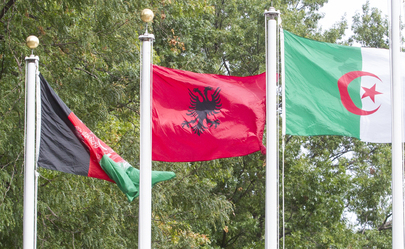10 Facts About Sanitation in Albania

Albania is one of the poorest countries in Europe. Today, 40 percent of its households lack basic education, heat and sanitation, and only 50 percent in both rural and urban areas have access to safe drinking water. Albania is located in southeastern Europe with neighboring countries Montenegro, Kosovo and Greece. The population estimates just over 3 million people. Albania became free from communist rule and later established a multiparty democracy holding its first multiparty election in 1991. Albania joined NATO in 2009 and became a candidate to join the European Union in 2014. In 2017, Albania received a European Commission recommendation to open EU accession negotiations. The unemployment rate has steadily decreased from 13.6 percent in 2017 to 11.4 in 2019. To learn more about its sanitation issues, here are 10 facts about sanitation in Albania.
10 Facts About Sanitation in Albania
- Basic sanitation services are increasing. People living in the rural section of Albania are using basic sanitation services, which is nearly a 15 percent increase from its lowest value of 82.19 percent in 2000. That means these people are using basic services that other households do not share.
- Sanitation conditions have grabbed the EU’s Attention. Since achieving the candidacy of the EU in 2014, Albania has made a commitment to bring its water and sanitation sector up to EU standards. The Albanian government has implemented numerous reforms, already reducing municipalities and local authorities from 300 to 61. The government is also progressively decentralizing public services, which means more decision-making responsibilities have gone to local governments and public authorities.
- National service providers are improving commercial and technical expertise. Albania’s water sector institutions are in cooperation with the National Ministry of Infrastructure and Energy. This partnership gives the project an outreach that extends to all cities to help communication flow between water users and the public with the institution using an online customer portal for service providers.
- Albania has resources for fresh water. Albania is a small country with over 150 rivers, including streams and lakes. Ninety-five percent discharge into the Adriatic Sea and only 5 percent of rivers go into the Ionian Sea. There are two periods of water flow during a calendar year. The shorter dry period runs from June through September. The wet period spans from October through May.
- The European Union supports clean water supply in Albania. In 2018, the EU contributed a 24 million euro grant to Albania. In the last 10 years, the grant support to its water supply exceeded 110 million euros. A large percentage of the grant goes to wastewater collections and treatment in Albania coastal regions.
- Albanian schools are promoting personal hygiene. A health fair occurred as part of the Vechan School Water Project and it included local nurses, students, the Red Cross and the local State Health Department. The project resulted in renovating and reconstructing bathrooms and plumbing to improve the conditions of the school due to damages from clogged toilets and sinks without running water or sinks running dirty water. The health fair gave lessons in personal hygiene to young students. It also tested students for diabetes and gave blood pressure checks. Following the fair, local experts, students and school staff took on the assistance in reconstructing the school.
- Worcester Polytechnic Institute (WPI) students provide data to remedy water issues in Albania. Each year, 24 WPI students go to Albania to work in four-person groups on six projects to address topics that include the water issues and how to solve them. These projects include documenting environmental conditions along major rivers, developing a water education program for Albanian high schools and promoting community-based tourism in villages that have previously inaccessible caves.
- The Albanian Water Regulatory Authority and Consumer Protection Commission developed a partnership to alleviate water and sanitation issues. The Water Regulatory Authority and Consumer Protection Commission have created a model contract between providers of water and sewerage services and their customers. The intent of the contract is to protect consumers’ interests with provisions for consumer protection and Albania’s water and environmental resources. This addresses issues concerning the access and quality of water and sanitation. This also educates both parties on ways to improve the quality of water and sanitation services.
- The Western Balkan Investment Framework (WBIF) supports water supply and sanitation services among other needs for Albania. The WBIF has supported 30 projects that value up to 2 billion euros which provide better schools, energy sources, modern sanitation services and supply water for its sectors eligible for rebuilding and renovation. The achieved results include wastewater systems for over 260,000 people with expectations to exceed another 100,000, in addition to improved waste services to 180,000.
- Water Charity contributes to rebuilding sanitation efforts in Albania. Water Charity has started a program to work on 100 water projects in Albania, including 10 school bathroom projects. The program falls under the Let Girls Learn Initiative. It is a collaborative effort from former First Lady Michelle Obama and the Peace Corps, which expands access to education for girls around the world.
Efforts from organizations in these 10 facts about sanitation in Albania have been exemplary for aiding Albania’s sanitation efforts overall. Thanks to multiple team efforts, Albania is optimistic about its conditions and overall health concerns. With more work ahead, this country is on its way to reaching EU potential.
– Thomas Cintula
Photo: UN Multimedia
